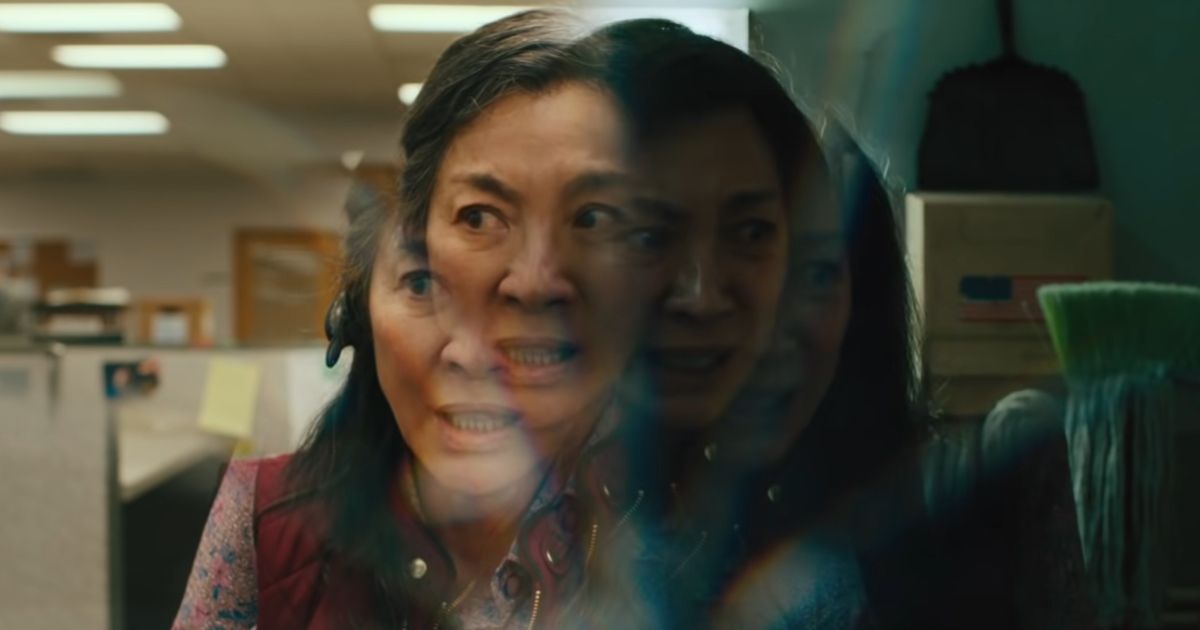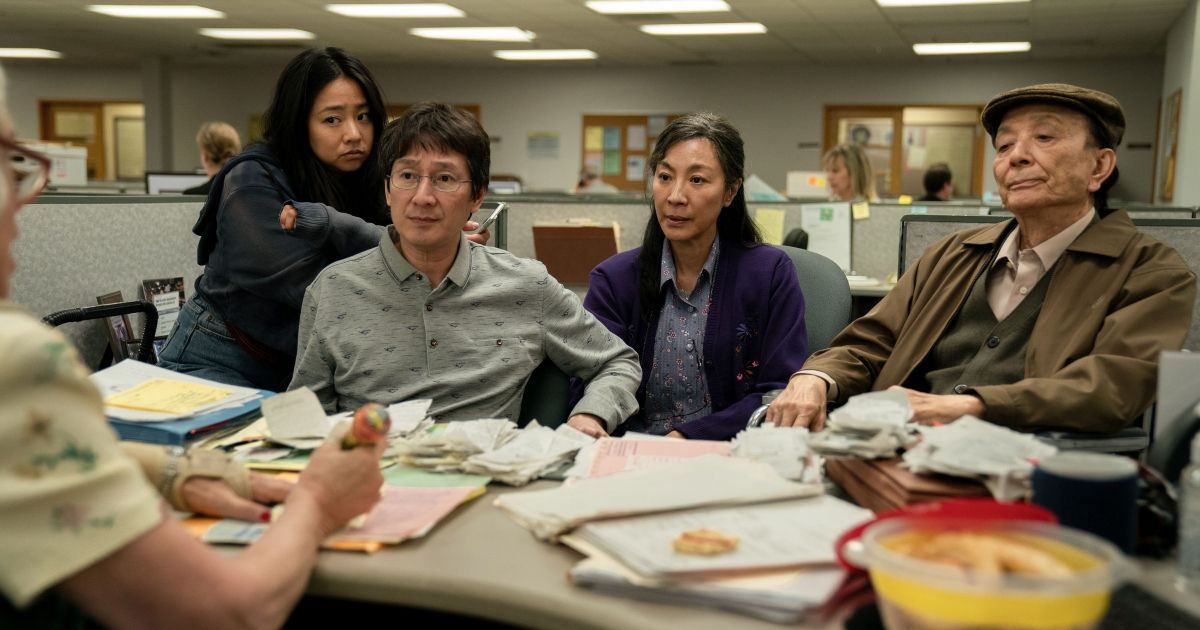Absurdist films can be quite hard to understand, as the general idea behind absurdism is that it makes the viewer question the meaning or the purpose of the film or the characters' acts from the very beginning itself. Making such films can be equally, or even more difficult. However, A24 was able to perfectly capture this genre in their 2022 absurdist comedy-drama Everything Everywhere All At Once. There are so many reasons why this film became a major hit. From its focus on people of color, to brilliant casting, and, of course, the whole cinematographic experience that ensures the audiences' eyes are glued to the screen.
Regardless of its absurdist genre, the movie has so much to unpack in terms of the modern world. Interestingly, Everything Everywhere All At Once makes the viewer think more about modern life. It is undeniable that having Asian characters evokes the cultural differences and issues relevant to that specific culture. Nevertheless, this particular movie has focused on several important challenges that many people face in modern society.
Immigration and Alienation
With immigration comes feelings of alienation. In Everything Everywhere All At Once we see that the protagonist, Evelyn (Michelle Yeoh) is leading a very unhappy life in America. The film uses flashbacks to show how Evelyn chose to leave China with her husband, Waymond Wang (Ke Huy Quan), due to her parents, especially her father, Gong Gong (James Hong), disapproving of their relationship.
However, unlike other stories, this particular couple doesn't lead a happy life. In fact, the film begins with Waymond trying to give Evelyn divorce papers. There is a heavy emphasis on the idea of immigration and alienation, because following their move to America, Evelyn seems to be feeling quite distressed. In fact, Kwan and Scheinert use the other lives of Evelyn in the multiverse to show how when she decides to leave Waymond and accept her father's decision, she ends up becoming a successful star.
Anne Annlin Cheng makes an interesting argument on how the film captures Asian-pessimism, as she states:
Asian Americans have a lot to feel pessimistic about: 300-plus years of virulent yet largely unacknowledged discrimination and marginalization that have culminated today in explicit acts of murderous violence.
Thus, it is obvious that Evelyn and Waymond's migration to America has drained their liveliness, as now they are struggling to run an unsuccessful laundromat in an area that seems to be secluded from the American dream.
Everything Everywhere All At Once: Every Version of Evelyn Wang, Ranked
Sexuality vs. Conservative Ideologies
Evelyn's daughter, Joy's (Stephanie Hsu) sexuality is one element that Kwan and Scheinert heavily highlight on. What is important about this, is that Joy being a lesbian is a troubling issue for Evelyn. Even though she tries her best to be ok with Joy's relationship with Becky (Tallie Medel), she hides their relationship from the family patriarch, Gong gong. The way in which she introduces Becky as Joy's friend definitely strikes a nerve in Joy. It emphasizes the way in which conservative ideas prevent the LGBTQIA+ community from having healthy relationships with their family as well as their culture. It can even be argued that the idea of shame caused by these conservative ideologies manifests into the breakdown of family bonds and can also lead to many mental health issues.
Something that needs to be praised is the real-life take on the movie as well. Even though certain foreign countries' censorship policies prevent the movie from entering its big screen, Kwan and Scheinert are not allowing such censorship to alter their movie. In fact, they state that:
“It’s not up to us if the movie is released in China, but all we said was that you can’t cut the gay storyline,” Scheinert said. “That’s all we’ve said to foreign distribution people.”
This also shows the conflict between sexuality and conservative ideas. Nonetheless, the duo not budging from their stance, only strengthens the movie and makes it a remarkable production.
Generational Trauma and Healing
Both Evelyn and Joy seem to be having their own problems, and from the beginning of the story, not only are these two characters unhappy with their lives, but they are also struggling with their bond, which seems to be breaking. While Evelyn has her own issues with the laundromat, Joy seems to be struggling with the way her mother is reacting to her relationship. Thus, the story focuses on Evelyn's journey in trying to figure out why Joy is hurting, which is embodied through her very nihilistic alter-ego Jobu Tupaki. Hsu talks about how her character is very much a reflection of her own self.
“When you break open like that, you can’t help but look into yourself and say, ‘OK, that pained me, and I need to look at that,’” Hsu said. “‘Something in me is wanting to heal, and something in me is wanting to take that leap of faith.’”
Everything Eveywhere All At Once also shows how the linguistic barrier can lead to misunderstandings between the generations. Unlike other stories, this film ensures that the protagonist is a portrayal of the Asian mother who makes mistake after mistake and struggles to understand her children. The film ends with the characters starting to heal and shows how there is a long process to it. This is quite significant as most movies end with a happy note that indicates everything is all healed and ok. However, Everything Everywhere All At Once goes against this trope in showing how the characters, while happy, are just starting to understand one another.




